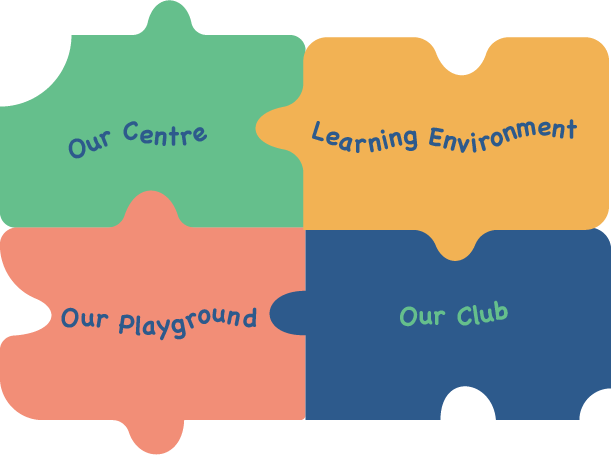
About Us

Our Philosophy
Young Academics Club recognizes that the early years are the foundation for preparing our children to be lifelong learners; therefore, we thrive to stablish a community where children’s ideas and questions are respected and where they are guided through the process of building a meaningful foundation of education through hands on learning experiences.
We have drawn upon the Montessori and Reggio Emilia approach in developing our own education philosophy through nature-based play and education. Our program links the indoor classrooms and outdoor garden spaces to provide a creative learning environment. A lot of thought and effort has gone into creating a nature-based facility that fosters children’s creativity, exploration and development.
Our philosophy and our guiding principles are implemented all across our centre.
Our Curriculum
We combine what children are curious about and what they wonder about to wrap the curriculum around learning in meaningful ways. Our curriculum will focus on child-initiated exploration, as opposed to strict, fact-based lessons. We will focus on the whole child as we strive to develop their social, physical, intellectual, creativity, and emotional skills.
“Education is not preparation for life, education is life itself” -John Dewey

Our Centre
Young Academics Club is a purpose-designed learning environment. This childcare has been designed by early childhood educators in collaboration with industry leading architects and engineers to create an environment that is home like, nurturing and stimulating.
This centre is a fully licensed facility, and our programs operate from 7:00 a.m. to 6:00 p.m. Monday-Friday, with the exception of all statutory holidays.
“School is a building which has four walls with tomorrow inside.” – Lon Watters
Our Club
Our foundation is based upon a mutual trust and partnership between our committed staff and the families. Our community is made up of children, their families and our teaching teams. We collaborate, communicate and make decisions with the members of our community to share their voices in the best interest of the child. We are who we are because of our community.
“Children are the priority. Change is the reality. Collaboration is the strategy.” – Judith Billings
Our Learning Environment
Our learning environments have been thoughtfully designed with the little explorers on mind; allowing them to freely navigate while nurturing their minds, increasing their sense of wonder, and helping them reach their full potentials in all aspects of life. We value both the indoors and outdoors equally, and have a particular emphasis on what environments and materials can provide and how they are presented as we believe this directly affects the way a child comes to the learning experience.
Our vibrant, inclusive and welcoming centre encourages exploration, play and learning possibilities, which allows our children to be active learners, curious about their environment and the people around them.
“Almost all creativity involves purposeful play” -Abraham Maslow
Our Playground
Active children are better prepared to learn and can develop habits that will last a lifetime. The thoughtful educators at Young Academics Club encourage children to have at least one-hour of active playtime on our playground every day. Our playground is located on the east side of our building; it is safe, secure, and child friendly.
When outdoor we prepare activities such as:
- Organized sports like as soccer, basketball, and Ping-Pong.
- Led games such as Simon says, I spot, tag, scavenger hunt, and duck, duck goose.
- Weather permitted games such as catching the bubbles, flying the kites, spinning the hula hoops, drawing with chalk, and gardening.
- Gardening (Garden program).
Garden Program: We believe that by implementing a vegetable/herb garden we can revolutionise the way children think about foods and the environment. We would encourage children to plant, see how vegetables/herbs are grown, and share healthy foods together. Our Garden program creates strong connections between what children grow to what they eat.
“Play is the highest form of research.” Albert Einstein
